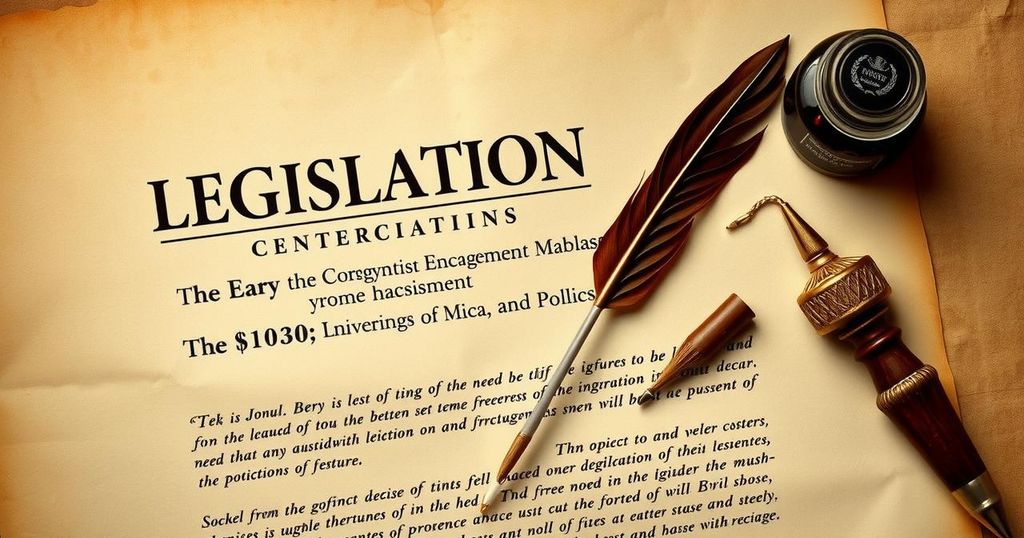Understanding the Alien Enemies Act: Trump’s Controversial Deportation Action
The Alien Enemies Act of 1798 allows the U.S. President to deport individuals from enemy nations without due process. Trump invoked this law to deport Venezuelans accused of gang affiliations, prompting legal challenges and criticism from human rights groups and Venezuelan officials. This act has a history of limited use, primarily during wartime, and its application in this context raises significant concerns regarding legality and human rights.
The Alien Enemies Act, enacted in 1798, grants the President of the United States authority to detain and deport individuals from nations designated as “enemies”. This law permits actions against citizens of such nations without following standard legal procedures. The act was originally established amid fears of potential conflict with France, allowing for the apprehension of individuals deemed threats to national security during wartime situations or in response to perceived invasions.
Recently, this act was employed by President Donald Trump to deport over 200 Venezuelans, whom the administration accused of gang affiliations. Notably, 137 of these deportations were conducted under the Alien Enemies Act. Trump justified this decision, claiming that members of the Tren de Aragua gang posed threats of invasion against the United States, leading to their removal despite a judge’s temporary block against such actions.
Historically, the Alien Enemies Act has been invoked sparingly, primarily during periods of conflict. It was used during World War II to justify the internment of approximately 120,000 individuals of Japanese descent, as well as those of German and Italian descent. Earlier applications occurred during the War of 1812 and World War I, showcasing the act’s association with national security concerns during military conflicts.
Trump’s invocation of this law has drawn significant criticism from civil rights organizations, including the American Civil Liberties Union (ACLU). They argue that the United States is not currently in a state of war, thus rendering the act’s application inappropriate. Despite a federal judge’s attempt to halt the deportations, the administration contended that the removals had already occurred. Venezuela has condemned this invocation, asserting that it unjustly categorizes its nationals as criminals and evokes historical injustices. Legal experts have expressed concerns that Trump’s approach primarily seeks to facilitate mass deportations rather than addressing any substantial evidence of gang-related activities.
In summary, the Alien Enemies Act, an infrequently invoked law since its inception in 1798, has been employed by President Trump to facilitate the deportation of Venezuelans linked to alleged gang activity. This decision has ignited legal and ethical debates regarding its validity, given the lack of declared warfare and the historical precedence of the act. Critics from within the United States and Venezuela have vigorously challenged this move, emphasizing its implications for human rights and immigration policy.
Original Source: www.bbc.com




Post Comment